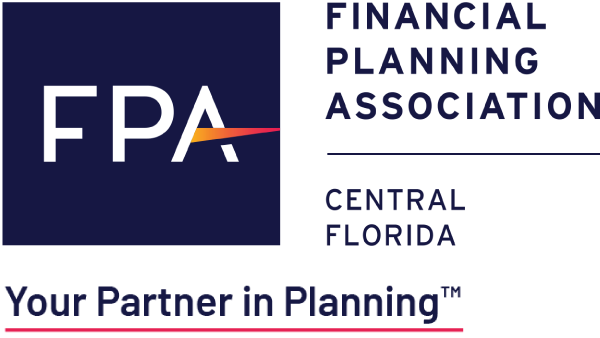
The Power of Financial Planning, Part Two
What Sets a True Financial Planner Apart from the Crowd
 The spectrum of professionals who offer financial planning services is a broad one — so broad, in fact, that it can be difficult to define exactly what a “financial planner” is and the kinds of skills they should bring to the table in their work with clients.
The spectrum of professionals who offer financial planning services is a broad one — so broad, in fact, that it can be difficult to define exactly what a “financial planner” is and the kinds of skills they should bring to the table in their work with clients.
Amid the alphabet soup of acronyms that may appear on a financial professional’s business card or résumé to represent the professional licenses, designations and certifications that person has earned, it’s critical not to lose sight of the fundamental skills and attributes that set true financial planners apart from people who claim the title but lack the training, competence and expertise to substantiate it. The benefits of working with a financial planner are well documented. But to realize those benefits, you better be sure the professional in whom you are entrusting your financial well-being — and, likely, your assets — has the right combination of core competencies and expertise.
This article, the second in a five-part series on The Power of Financial Planning, details what that combination of competency and expertise might include.
Areas in which a financial planner should demonstrate COMPETENCE
To call themselves a financial planner, a financial professional should be trained in, and have demonstrated competency in, multiple areas of finance. They “must have the experience and background in investment, retirement, tax, estate and even business, or business succession, planning,” asserts Scott A. Bishop, CFP® at STA Wealth Management in Houston, TX. To earn the CERTIFIED FINANCIAL PLANNER™ (CFP®) designation, for example, professionals must complete a comprehensive course of study encompassing more than 100 topics in stocks, bonds, taxes, insurance, retirement planning and estate planning. In addition, they must have earned a bachelor's degree from a regionally accredited college or university.
CERTIFIED FINANCIAL PLANNER™ (CFP®) professionals are trained in eight specific areas:
- Professional Conduct and Regulation
- General Principles of Financial Planning
- Education Planning
- Risk Management and Insurance Planning
- Investment Planning
- Tax Planning
- Retirement Savings and Income Planning
- Estate Planning
Areas in which a financial planner should demonstrate EXPERTISE
Beyond demonstrating competency in the aforementioned seven areas, look for a financial planner who possesses expertise in the following six areas:
- Information-gathering. The entire financial planning process is predicated on the financial professional having a thorough picture and understanding of an individual’s, a couple’s or a family’s financial life and their goals, both short- and long-term. CFP® professionals are trained to perform a complete data-gathering process with all their clients, allowing them to see the big picture before making any recommendations to the client. As part of that due diligence, “a planner should be very good at asking probing questions and then sitting back and carefully listening,” says Elliot B. Herman, CFP® with PRW Wealth Management in Quincy, MA.
- Financial plan design and methodology. A financial planner must have the ability to synthesize all the information they gather about a person’s financial life and goals into a comprehensive, well-coordinated plan that connects that person’s assets to their goals. “Understanding and then prioritizing goals is important,” says Herman, “while subsequently laying out a manageable action plan for implementation is equally important.”
It’s also important for a financial planner to have, and follow, a well-defined planning process or methodology. Designing a financial plan “is not an event, but a project to be carefully managed,” says Bishop. “If they don’t follow a defined process, then they aren’t a true financial planner.”
- Team-building. Serving a client’s financial planning needs “takes a team and not just a person,” says Bishop. That means financial planners should be experts in coordinating, and working as part of, a team. When the situation calls for it, they need access to specialists in certain areas of financial planning to augment their own expertise. “The advantage of working in a team environment is that everyone can have an area or two in which their expertise excels. When you get a question in an area that isn't a strength, then you are often able to turn to a colleague, or find the expertise among other professionals in town, for the kind of answer your client deserves,” explains CERTIFIED FINANCIAL PLANNER™ professional Norman M. Boone, president of Mosaic Financial Partners in San Francisco, CA. “If you can't do that, your fiduciary responsibility to the client is to admit you don't know. We all have a responsibility to learn as much as we can and to continue growing in what we learn, but we also have a responsibility to know our limits and to be willing to admit to them.”
- A level of specialization in at least some (but probably not all) of the seven competencies referenced above. “In my experience, it’s rare to find a person who has expertise in every single area of financial planning,” Bishop says. “What you want is a financial professional who, if they don’t know all the answers, knows all the right questions to ask.”
- Acting as a fiduciary. Financial planners who operate under a fiduciary standard are obligated to always put the interests of their clients first, above their own interests and those of their firm or the company (or companies) whose products and services they represent. CFP® professionals are required to adhere to a fiduciary standard. To find out if a financial professional is a fiduciary, just ask them.
- The strategies, maneuvers and products involved in financial planning can seem complex, particularly to a layperson. It’s critical that a financial planner be able to clearly and understandably explain how they do business (the fees they charge, the processes, strategies and products they use) and the rationale behind the recommendations they make and the actions they undertake on a client’s behalf.
Accessibility is a critical component of communication, notes Bishop. Clients should be able to use their preferred communications channels — email, phone, text message, etc. — to reach a financial professional. And those channels should accommodate communication in both directions, with the financial professional also being proactive in his or her outreach to clients.

